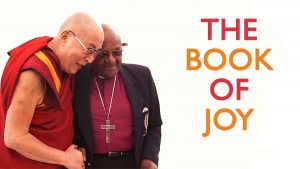 The holiday season is, at its root, a time of joy. When we remove the commercial trappings, and blatant consumerism, we are all celebrating a joyous event—Joy at a redeemer born in a manger long ago, or joy at the miracle of light, born of oil that lasted eight whole nights.
The holiday season is, at its root, a time of joy. When we remove the commercial trappings, and blatant consumerism, we are all celebrating a joyous event—Joy at a redeemer born in a manger long ago, or joy at the miracle of light, born of oil that lasted eight whole nights.
We rejoice in our freedom to choose which miracle we believe in, and also, our right to accept none. And, each of us, regardless of our particular belief systems, reflects upon the joy of loved ones, who are a miracle unto themselves.
But, what if we don’t. What if life is tough, and loved ones are far, and miracles seem hard to come by? Is there still a reason to celebrate? Where then, can joy be found?
Questions worthy of philosophers much wiser than I, these are things that have been asked for as long as man can remember. How do we find joy in a world filled with sorrow? When life hands us lemons, how exactly, do we taste lemonade, instead of bitter rind?
Two of the world’s most revered leaders have come together to offer their insight into the answer.
His Holiness, the Dalai Lama, religious and political leader of Tibet, and Archbishop Desmond Tutu, of South Africa, recently spent a week together at the Dalai Lama’s residence in exile to consider the subject of happiness in a dark world.
The two men, both of whom have seen their people struggle with immense hardship, were joined on their visit by writer Douglas Abrams.
The result was the recently released book, “The Book of Joy: Lasting Happiness in a Changing World.”
The book chronicles their week together, sharing both their wisdom, as well as the lighter moments when they teased one another, enjoying their abiding friendship. The two share their spiritual practices, reflect on the fragility of life, as the Archbishop battles prostate cancer, and consider, what it is exactly, that brings joy to mankind.
They share both spiritual and scientific wisdom on the matter, identifying Obstacles to joy, such as fear, stress, and envy, among others, and offering us the Eight Pillars of Joy: Perspective, Humility, Humor, Acceptance, Forgiveness, Gratitude, Compassion, and Generosity.
The last portion of the book is perhaps my favorite, and is devoted to joy practices. Here we see two men of differing faiths, sharing their own ways to keep themselves centered in joy. Each section, some based on overcoming things such as loneliness, and others based on embracing things such as compassion, includes a mediation, a prayer, and a practical application designed to help readers with regards to the particular value or obstacle.
It is two separate ideologies converging to help encourage a more full life—a representation in print that rather than dividing us, our differences actually make us stronger.
The Dalai Lama has long said that we can only find ultimate happiness within ourselves. The two men expand on this thought in the introduction to the book:
“No dark fate determines the future. We do. Each day and each moment, we are able to create and re-create our lives and the very quality of human life on our planet…lasting happiness cannot be found in the pursuit of any goal or achievement. It does not reside in fortune or fame. It resides only in the human mind and heart, and it is here that we hope you will find it.
You don’t need to believe us. Indeed, nothing we say should be taken as an article of faith. We are sharing what two friends, from very different worlds, have witnessed and learned in our long lives. We hope you will discover whether what is included here is true by applying it in your own life, every day is an opportunity to begin again.”
And that alone, my friends, is cause for joy.




